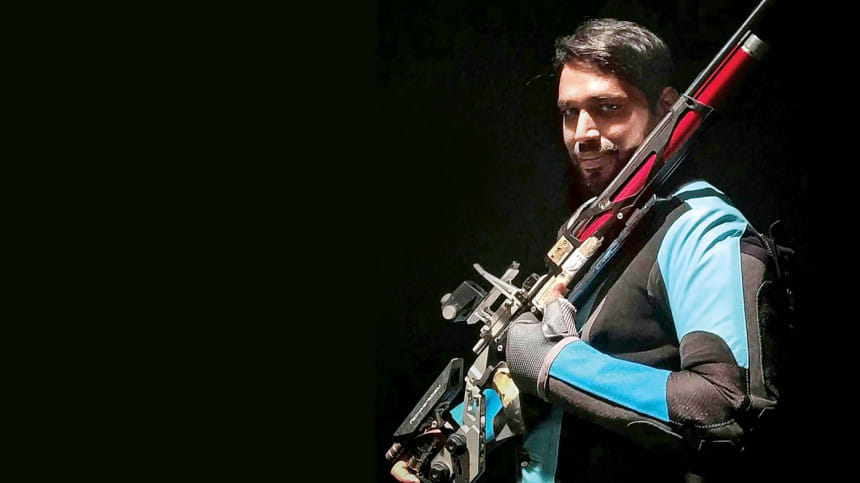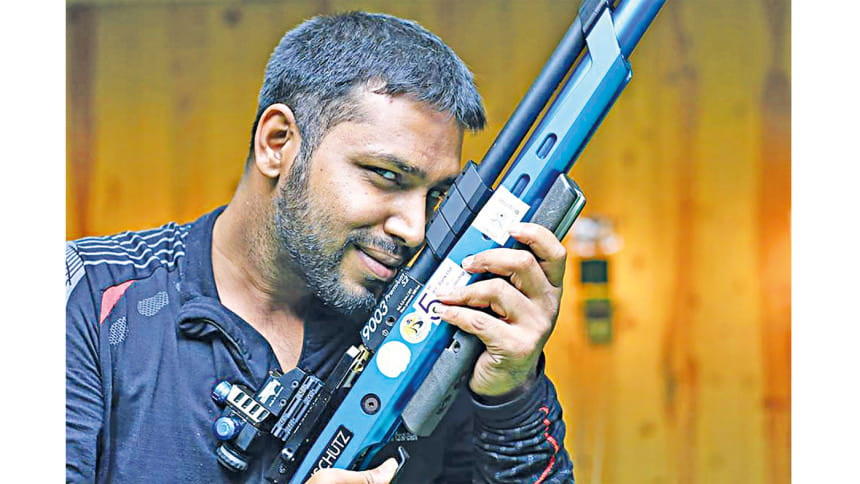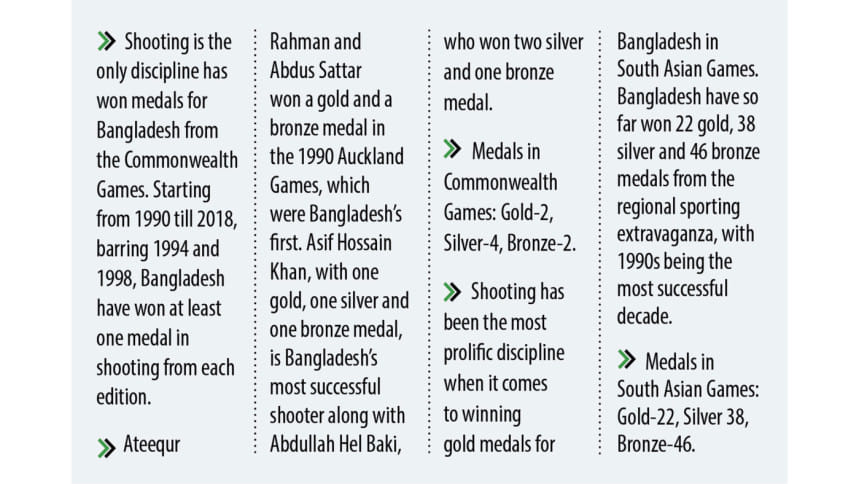Could shooting be the guiding light again?

When the Bangladesh contingent leaves the Birmingham shores following the 22nd Commonwealth Games in the first week of August this year, it could very well be the first time since 1998 that the men in red and green would return empty handed.
The reason for this premonition is simple: there will be no shooting event in Birmingham, the first time the discipline has been dropped from the roster of the multisport event for the Commonwealth of Nations. The decision by the games organisers has perhaps not hit any nation harder than it has hit Bangladesh, who boast all eight of their medals so far, including two gold medals, from this one discipline.
In other words, shooting has been a beacon in the dark for Bangladesh in the Commonwealth Games, despite the fact that this expensive sport lags far behind in popularity and endorsement to sports such as cricket and football. And shooting's success is not only not confined to the Commonwealth Games, in the South Asian Games – considered the most relevant and realistic multisport games where Bangladesh can compete – the sport with pistols and rifles lead the tally as far as gold medals are concerned.

While Bangladesh's Niaz Murshed becoming the first Grand Master from the subcontinent in 1987 and Mosharrof Hossain winning a bronze medal in the Asian Games boxing the previous year had brightened the image of the country's sports, it was the gold medal won by Abdus Sattar and Ateequr Rahman in the Auckland Commonwealth Games in 1990 that truly put Bangladesh on the global sporting map. And when a teenaged Asif Hossain grabbed the gold medal in individual 10m air rifle event in 2002 Manchester Commonwealth Games, the world was made to stand up and take notice.
Shooting has been a beacon in the dark for Bangladesh in the Commonwealth Games, despite the fact that this expensive sport lags far behind in popularity and endorsement to sports such as cricket and football.
That is what the sport has given Bangladesh over the years in terms of sporting success, and that is exactly the biggest point of frustration, when one considers that the promise of something bigger could not be materialised, instead the sport is slowly but surely receding from the track of international success.
There are many reasons behind the decay: the expensive nature of the sport and the lack of sponsor interest is certainly one, but not the whole thing. Ever since the sport grabbed limelight within the country, there has been infighting over the ownership of success and the control of the federation, which helps yield quite a bit of clout in circles of power and prestige. Instead of nurturing the shooters with a vision for the future, the myopic plans of the authorities have only stunted the growth of the sport, so much so that we are lagging behind our regional competitors on many instances. The infighting in the federation and the consequent lack of sponsorship saw successful Danish rifle coach Klavs Christensen depart midway through his contract a couple of years ago. And performances of the shooters, especially the rifle shooters, dropped significantly since then.

Not everything is lost yet though. This is a sport in which Bangladeshis have historically been good at and the lost ground could still be made up with a concerted effort and proper planning. A new Iranian rifle coach has been roped in as the federation looks to clean up its mess and move forward.
Shooting was once thought to be a discipline with the promise of ending Bangladesh's Olympic medal hoodoo. Maybe at present context, the Olympics is a dream too far, but preparations should be afoot for the South Asian Games next year so that in time for the next Asian Games and Commonwealth Games, Bangladesh could be in a position to compete for medals.

 For all latest news, follow The Daily Star's Google News channel.
For all latest news, follow The Daily Star's Google News channel. 



Comments